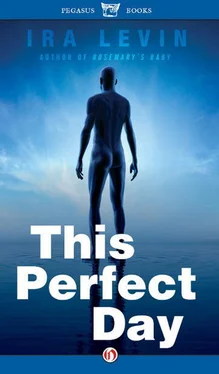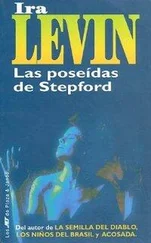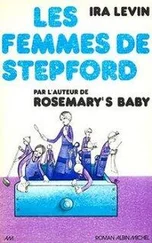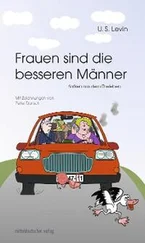“All right,” he said. “I’ll be right down.”
His mother said, “What does she want to see you on a Sunday for?”
“I don’t know,” Chip said.
But he knew. Anna VF had called her adviser.
He rode the escalators down, down, down, wondering how much Anna had told, and what he should say; and wanting suddenly to cry and tell Mary that he was sick and selfish and a liar. The members on the upgoing escalators were relaxed, smiling, content, in harmony with the cheerful music of the speakers; no one but he was guilty and unhappy.
The advisory offices were strangely still. Members and advisers conferred in a few of the cubicles, but most of them were empty, the desks in order, the chairs waiting. In one cubicle a green-coveralled member leaned over the phone working a screwdriver at it.
Mary was standing on her chair, laying a strip of Christmas bunting along the top of Wei Addressing the Chemotherapists. More bunting was on the desk, a roll of red and a roll of green, and Mary’s open telecomp with a container of tea beside it. “Li?” she said, not turning. “That was quick. Sit down.”
Chip sat down. Lines of green symbols glowed on the telecomp’s screen. The answer button was held down by a souvenir paperweight from RUS81655.
“Stay,” Mary said to the bunting and, watching it, backed down off her chair. It stayed.
She swung her chair around and smiled at Chip as she drew it in to her and sat. She looked at the telecomp’s screen, and while she looked, picked up the container of tea and sipped from it. She put it down and looked at Chip and smiled.
“A member says you need help,” she said. “The girl you fucked last night, Anna”—she glanced at the screen—“VF35H6143.”
Chip nodded. “I said a dirty word,” he said.
“Two,” Mary said, “but that’s hardly important. At least not relatively. What is important are some of the other things you said, things about deciding which classification you would pick if we didn’t have UniComp to do the job.”
Chip looked away from Mary, at the rolls of red and green Christmas bunting.
“Is that something you think about often, Li?” Mary asked.
“Just sometimes,” Chip said. “In the free hour or at night; never in school or during TV.”
“Nighttime counts too,” Mary said. “That’s when you’re supposed to be sleeping.”
Chip looked at her and said nothing.
“When did it start?” she asked.
“I don’t know,” he said, “a few years ago. In Eur.”
“Your grandfather,” she said.
He nodded.
She looked at the screen, and looked at Chip again, ruefully. “Didn’t it ever dawn on you,” she said, “that ‘deciding’ and ‘picking’ are manifestations of selfishness? Acts of selfishness?”
“I thought, maybe,” Chip said, looking at the edge of the desktop, rubbing a fingertip along it.
“Oh, Li,” Mary said. “What am I here for? What are advisers here for? To help us, isn’t that so?”
He nodded.
“Why didn’t you tell me? Or your adviser in Eur? Why did you wait, and lose sleep, and worry this Anna?”
Chip shrugged, watching his fingertip rubbing the desktop, the nail dark. “It was—interesting, sort of,” he said.
“‘Interesting, sort of,’” Mary said. “It might also have been interesting, sort of, to think about the kind of pre-U chaos we’d have if we actually did pick our own classifications. Did you think about that?”
“No,” Chip said.
“Well, do. Think about a hundred million members deciding to be TV actors and not a single one deciding to work in a crematorium.”
Chip looked up at her. “Am I very sick?” he asked.
“No,” Mary said, “but you might have ended up that way if not for Anna’s helpfulness.” She took the paperweight from the telecomp’s answer button and the green symbols disappeared from the screen. “Touch,” she said.
Chip touched his bracelet to the scanner plate, and Mary began tapping the input keys. “You’ve been given hundreds of tests since your first day of school,” she said, “and UniComp’s been fed the results of every last one of them.” Her fingers darted over the dozen black keys. “You’ve had hundreds of adviser meetings,” she said, “and UniComp knows about those too. It knows what jobs have to be done and who there is to do them. It knows everything. Now who’s going to make the better, more efficient classification, you or UniComp?”
“UniComp, Mary,” Chip said. “I know that. I didn’t really want to do it myself; I was just—just thinking what if, that’s all.”
Mary finished tapping and pressed the answer button. Green symbols appeared on the screen. Mary said, “Go to the treatment room.”
Chip jumped to his feet. “Thank you,” he said.
“Thank Uni,” Mary said, switching off the telecomp. She closed its cover and snapped the catches.
Chip hesitated. “I’ll be all right?” he asked.
“Perfect,” Mary said. She smiled reassuringly.
“I’m sorry I made you come in on a Sunday,” Chip said.
“Don’t be,” Mary said. “For once in my life I’m going to have my Christmas decorations up before December twenty-fourth.”
Chip went out of the advisory offices and into the treatment room. Only one unit was working, but there were only three members in line. When his turn came, he plunged his arm as deep as he could into the rubber-rimmed opening, and gratefully felt the scanner’s contact and the infusion disc’s warm nuzzle. He wanted the tickle-buzz-sting to last a long time, curing him completely and forever, but it was even shorter than usual, and he worried that there might have been a break in communication between the unit and Uni or a shortage of chemicals inside the unit itself. On a quiet Sunday morning mightn’t it be carelessly serviced?
He stopped worrying, though, and riding up the escalators he felt a lot better about everything—himself, Uni, the Family, the world, the universe.
The first thing he did when he got into the apartment was call Anna VF and thank her.
At fifteen he was classified 663D—genetic taxonomist, fourth class—and was transferred to RUS41500 and the Academy of the Genetic Sciences. He learned elementary genetics and lab techniques and modulation and transplant theory; he skated and played soccer and went to the Pre-U Museum and the Museum of the Family’s Achievements; he had a girlfriend named Anna from Jap and then another named Peace from Aus. On Thursday, 18 October 151, he and everyone else in the Academy sat up until four in the morning watching the launching of the Altaira, then slept and loafed through a half-day holiday.
One night his parents called unexpectedly. “We have bad news,” his mother said. “Papa Jan died this morning.”
A sadness gripped him and must have shown on his face.
“He was sixty-two, Chip,” his mother said. “He had his life.”
“Nobody lives forever,” Chip’s father said.
“Yes,” Chip said. “I’d forgot how old he was. How are you? Has Peace been classified yet?”
When they were done talking he went out for a walk, even though it was a rain night and almost ten. He went into the park. Everyone was coming out. “Six minutes,” a member said, smiling at him.
He didn’t care. He wanted to be rained on, to be drenched. He didn’t know why but he wanted to.
He sat on a bench and waited. The park was empty; everyone else was gone. He thought of Papa Jan saying things that were the opposite of what he meant, and then saying what he really meant down in the inside of Uni, with a blue blanket wrapped around him.
On the back of the bench across the walk someone had red-chalked a jagged FIGHT UNI. Someone else—or maybe the same sick member, ashamed—had crossed it out with white. The rain began, and started washing it away; white chalk, red chalk, smearing pinkly down the benchback.
Читать дальше











